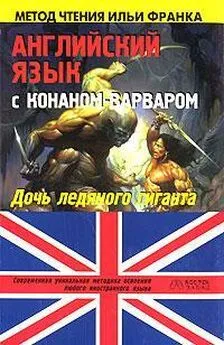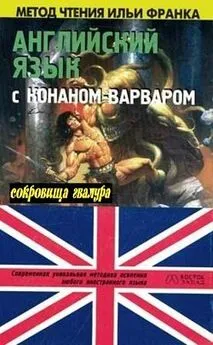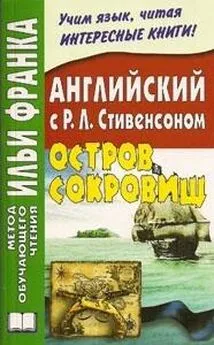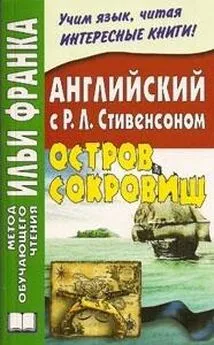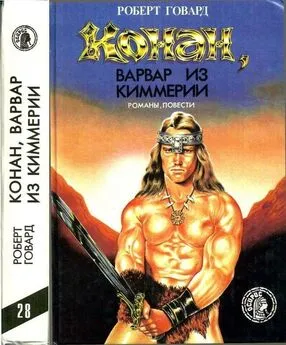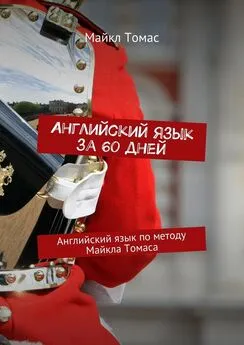Роберт Говард - Английский язык с Конаном-варваром
- Название:Английский язык с Конаном-варваром
- Автор:
- Жанр:
- Издательство:АСТ, Восток-Запад
- Год:2007
- Город:Москва
- ISBN:5-17-042032-3, 5-478-00503-7
- Рейтинг:
- Избранное:Добавить в избранное
-
Отзывы:
-
Ваша оценка:
Роберт Говард - Английский язык с Конаном-варваром краткое содержание
В книге предлагается произведения Роберта Е. Говарда, адаптированные (без упрощения текста оригинала) по методу Ильи Франка. Уникальность метода заключается в том, что запоминание слов и выражений происходит за счет их повторяемости, без заучивания и необходимости использовать словарь. Пособие способствует эффективному освоению языка, может служить дополнением к учебной программе. Предназначено для студентов, для изучающих английский язык самостоятельно, а также для всех интересующихся английской культурой.
Метод чтения Ильи Франка
Содержание:
Дочь ледяного великана
Проклятие монолита
Замок ужаса
За Черной рекой
Тени Замбулы
Английский язык с Конаном-варваром - читать онлайн бесплатно полную версию (весь текст целиком)
Интервал:
Закладка:
part [pɑ: t], began [bɪˈɡæn], drain [dreɪn]
Conan ran on. He had been running now for the better part of an hour, with a long, loping stride that ate up the leagues. At first he had run effortlessly, but now the grueling exertions of his flight through the black jungles and his eight-day trek across the plain began to take their toll. His eyes blurred; the muscles of his legs ached. Every beat of his bursting heart seemed to drain away the strength remaining in his giant form.
He prayed to his savage gods for the moon to emerge from the dense, stormy clouds that veiled most of the sky (он молился своим дикарским богам, чтобы луна вышла: «для луны выйти» из плотных грозовых туч, которые скрыли большую часть неба; veil — покрывало, вуаль ). He prayed for a hillock or a tree to break the gently rolling flatness of the plain, or even a boulder against which he could set his back to make a last stand against the pride (он молился, чтобы холмик или дерево нарушили ровно тянущуюся плоскость равнины, или даже глыба, к которой он мог прислонить свою спину, /чтобы/ оказать последнее сопротивление /против/ прайду). [15] Здесь это не «гордость», а львиное семейство, в которое входит один лев и несколько львиц. Пока глава семейства размышляет о проблемах мирового масштаба, самки охотятся. И сейчас лев, по-видимому, не захотел связываться с каким-то варваром лично, а послал на дело львиц.
savage [ˈsævɪʤ], emerge [ɪˈmə: ʤ], stormy [ˈstɔ: mɪ]
He prayed to his savage gods for the moon to emerge from the dense, stormy clouds that veiled most of the sky. He prayed for a hillock or a tree to break the gently rolling flatness of the plain, or even a boulder against which he could set his back to make a last stand against the pride.
But the gods heard not (но боги не услышали). The only trees in this region were dwarfish, thorny growths (единственными деревьями в этом районе были карликовые колючие деревца: «поросли»; dwarf — карлик; thorn — колючка, шип ), which rose to a height of six or eight feet and then spread their branches out horizontally in a mushroom shape (которые поднимались на высоту шести или восьми футов = шести-восьми футов , а потом простирали свои ветви горизонтально в форме гриба). If he managed to climb such a tree despite the thorns (если бы он смог забраться на такое дерево, несмотря на колючки), it would be easy for the first lion to reach the base to spring upon him from below and bear him to the ground in one leap (/это/ было бы легко для первого льва — достичь основания, /чтобы/ прыгнуть на него снизу и стащить его на землю одним прыжком; to manage — смочь, умудриться ). The only hillocks were termite nests (единственными холмиками были термитные гнезда = термитники ), some rising several feet in height but too small for purposes of defense (некоторые поднимались /на/ несколько футов в высоту, но /были/ слишком малы для целей обороны). There was nothing to do but run on (/там/ было ничего делать = делать было нечего , [16] Дело было вечером. Интересно, С. Михалков читал о Конане, или просто совпало.
кроме как бежать дальше / продолжать бежать).
termite [ˈtə: maɪt], purpose [ˈpə: pəs], defense [dɪˈfens]
But the gods heard not. The only trees in this region were dwarfish, thorny growths, which rose to a height of six or eight feet and then spread their branches out horizontally in a mushroom shape. If he managed to climb such a tree despite the thorns, it would be easy for the first lion to reach the base to spring upon him from below and bear him to the ground in one leap. The only hillocks were termite nests, some rising several feet in height but too small for purposes of defense. There was nothing to do but run on.
To lighten himself, he had cast aside the great hunting bow when he had spent his last shaft, although it wrenched his heart to throw away the splendid weapon (/чтобы/ облегчиться, [17] В хорошем смысле этого слова. А вы что подумали?
он отбросил /в сторону/ большой охотничий луг, когда потратил свою последнюю стрелу, хотя это причинило мучение его сердцу — выбросить отличное оружие; to wrench — вывертывать, вырывать; мучить, причинять страдание, боль ). Quiver and straps soon followed (колчан и ремешки вскоре последовали /за луком/). He was now stripped to a mere loin- clout of leopard skin (он был теперь раздет до одной набедренной повязки из леопардовой шкуры; loins — поясница ), the high-laced sandals that clad his feet (сандалий с высокой шнуровкой, которые укрывали его ступни), his goatskin water bag (его бурдюка для воды), and the heavy broadsword, which he now carried scabbarded in one fist (и тяжелого палаша, который он сейчас нес в ножнах в одном кулаке; scabbard — ножны ). To part with these would mean surrendering his last hope (расстаться с этими = этим означало бы отказаться от последней надежды; to surrender — сдаться, капитулировать, отказаться от ).
bow [bəu], last [lɑ: st], fist [fɪst]
To lighten himself, he had cast aside the great hunting bow when he had spent his last shaft, although it wrenched his heart to throw away the splendid weapon. Quiver and straps soon followed. He was now stripped to a mere loin-clout of leopard skin, the high-laced sandals that clad his feet, his goatskin water bag, and the heavy broadsword, which he now carried scabbarded in one fist. To part with these would mean surrendering his last hope.
The lions were now almost at his heels (львы были = шли теперь почти по пятам; to be at one’s heels — следовать по пятам ). He could smell the strong reek of their lithe bodies and hear their panting breath (он мог чуять сильный /неприятный/ запах их гибких тел и слышать их тяжелое/пыхтящее дыхание; to pant — часто и тяжело дышать, задыхаться ). Any moment, now, they would close in upon him, and he would be making his last furious fight for life before they pulled him down (/в/ любой момент теперь они приблизятся к нему, и он будет вести свой последний яростный бой за жизнь, прежде чем они доберутся до него; to close in upon — приблизиться с целью нападения ).
heels [hi: lz], reek [ri: k], breath [breƟ]
The lions were now almost at his heels. He could smell the strong reek of their lithe bodies and hear their panting breath. Any moment, now, they would close in upon him, and he would be making his last furious fight for life before they pulled him down.
He expected his pursuers to follow their age-old tactics (он ожидал, /что/ его преследователи последовать = последуют их вековой тактике). The oldest male — the chief of the pride — would follow directly behind him, with the younger males on either flank (самый старший самец — глава прайда [18] Нет, все-таки глава семейства пошел на дело, точнее на тело Конана, которым они все хотели полакомиться. Но чует мое сердце, что не будет варварское «тело» в шляпе.
— последует прямо за ним с более молодыми самцами на каждом фланге = на обоих флангах ). The swifter lionesses would range ahead on either side in a crescent formation until they were far enough ahead of him to close the circle and trap him (более быстрые львицы выстроятся /в ряд/ впереди по обеим сторонам строем в виде полумесяца, пока они /не/ будут достаточно далеко впереди него, чтобы замкнуть круг и поймать его; ahead of — впереди ). Then they would all rush in upon him at once, making any effective defense impossible (затем они все набросятся на него сразу, делая любую эффективную оборону невозможной).
chief [tʃi: f], flank [flæŋk], range [reɪnʤ]
He expected his pursuers to follow their age-old tactics. The oldest male — the chief of the pride — would follow directly behind him, with the younger males on either flank. The swifter lionesses would range ahead on either side in a crescent formation until they were far enough ahead of him to close the circle and trap him. Then they would all rush in upon him at once, making any effective defense impossible.
Suddenly, the land was flooded with light (вдруг земля была = оказалась залита светом). The round silver eye of the rising moon glared down upon the broad plains (круглый серебряный глаз восходящей луны ярко осветил широкие равнины), bathing the racing figure of the giant barbarian with her gaze (омывая несущуюся фигуру гигантского варвара ее взглядом) and drawing lines of pale silver fire along the rippling sinews of the lions (и рисуя линии из бледного серебристого огня по струящимся мышцам львов) as they loped at his heels, washing their short, silken fur with her ghostly radiance (когда они бежали вприпрыжку по его пятам, омывая их короткую шелковистую шерсть ее призрачным сиянием; fur — мех; [19] Но мы-то знаем, что у львов шерсть, а не мех.
ghost — привидение, призрак; дух ).
flooded [ˈflʌdɪd], round [raund], silver [ˈsɪlvə]
Читать дальшеИнтервал:
Закладка:
